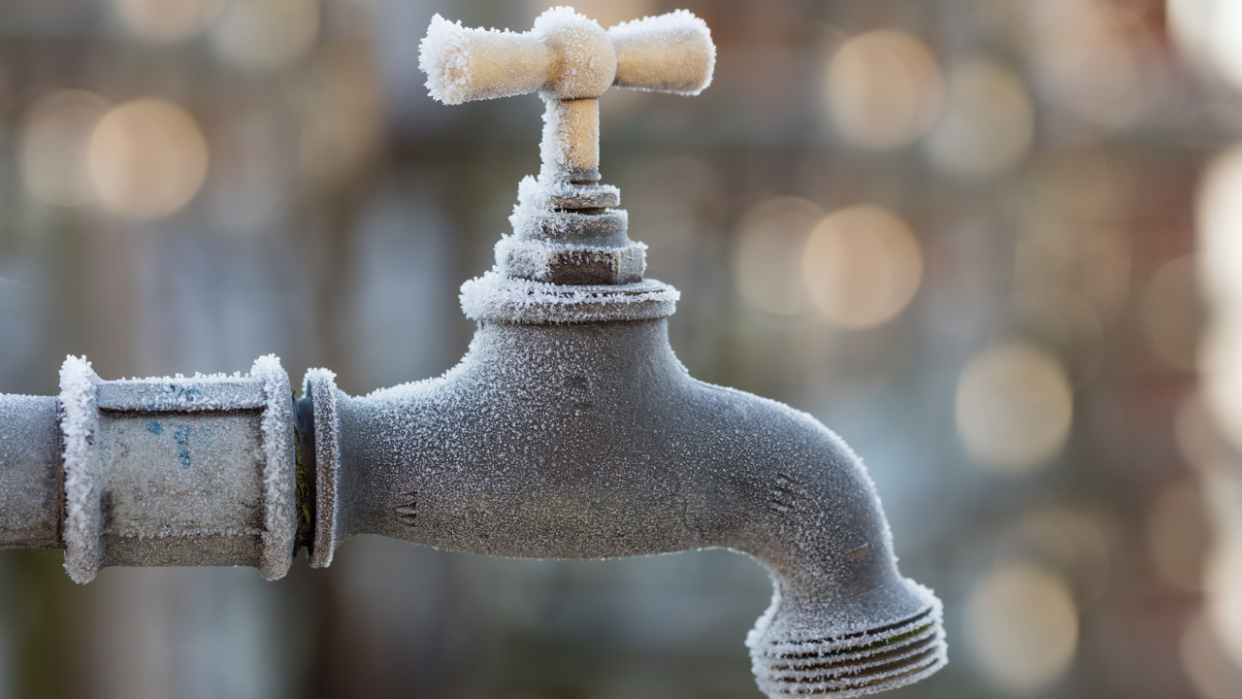4 essential household checks I'm carrying out before winter arrives

Data reveals over half of Brits (54%) put off essential winter home maintenance jobs due to lack of time or money pressures. However, this can result in either hefty repair costs or large insurance claims after damaged due to a lack of winter preparation. After recently moving into a new house, this is something I've wanted to prioritise in the lead up to winter, especially as I now have a larger inside and outside space.
With this in mind, I spoke to the household experts at Yell to find out to prepare for the onslaught of cold temperatures and more severe and unpredictable weather conditions. Even though it's October, the temperatures have dipped a lot in the UK recently, and it's gotten the point that I'm reminded of what I need to do every time I leave the house. In our insightful conversation, I learnt that the key to avoiding internal and/or external damage during the winter months is to prepare ahead of time, and it's these individual tips I'm sharing with you today.
Before you find out more, check out these 5 low-cost ways to heat your home for longer this autumn and winter.
1. Check the roof
If regular checks aren’t done correctly or in a timely manner, your roof can receive anything from minor to extensive damage during the winter. Winter storms bring heavy rain, strong winds, and snowfall which can all negatively impact your roof and your wallets if it has not been properly maintained and prepared for winter.
Safely find a good viewpoint where you can check out your roof to see if any damage has occurred, and check for issues such as missing tiles, blocked gutters, holes and debris build-up.
Missing tiles can result in water damage or leaks which can be a costly repair, whilst debris build-up and blocked gutters can put extra weight on your roof, as well as increase the risk of damage from high winds, rain or heavy snowfall.
If you are unsure or would like a professional opinion on how well your roof is prepared for the winter, calling a professional roofing service is the best choice.
2. Check the pipes to avoid freezing
Whilst a quick Google may seem like a quick fix, experts at Yell warned me that at-home thawing of pipes can cause them to burst and you should always consult a professional. Luckily, there are a few easy things you can do to ensure this doesn't happen.
Ensure all pipes in your roof space or loft, as well as pipes in other areas that may be vulnerable to the cold, are insulated and your boiler is serviced. You can also add some insulation to your popes and faucets which you can either do yourself at home or call a professional plumber in to do this for you.
If you are heading away for the winter or you are debating not turning your heating on much this year, ensure your heating is not turned off completely but instead remains low.
Either ensure your thermostat is set to a minimum of 18 degrees or have your heating timed to come on regularly throughout the winter to ensure the pipes are kept warm and are not at risk of freezing.
3. Block out window and door draughts
There is no easier way to save money on your heating bills than by ensuring any window and door draughts are blocked out. If you have an open chimney, draught-proofing your chimney when you’re not using it could save around £65 a year.
Draft proofing your home will vary depending on what level of proofing you need. For example, older properties will require more draft proofing measures, but much of it can be done by the homeowners themselves. By adding the metal brushed window and draught excluders to your frames, you will be able to keep out the cold and reduce the amount of hot air that is being lost. These can be fitted to both exterior and interior doors.
As well as doors and windows, keyholes and letterboxes are also big conductors of drafts so make sure to get these blocked too. If you are not comfortable fitting these yourself, hiring a handyman service is quick and simple.
4. Check the heating system
I also learnt that it’s a good idea to have your furnace or boiler system checked annually by a professional, but additional checks are advised when exceptionally cold weather or storms are imminent. If you have a boiler, you should carry out some easy monthly checks in addition to the annual review. These could include checking your water pressure once a month, bleeding your radiators twice a year and seeing if any wiring looks questionable or damaged.
Technicians will also do annual checks on heat pump systems, but monthly checks and maintenance are encouraged before the winter months.
If you are unsure as to whether your heating system will withstand the coldest temperatures of the UK winter, calling a professional plumber is the best and easiest choice.
Getting your property ready for winter may seem like a daunting task but by following this expert-approved checklist, you can avoid any expensive emergency repairs during the winter and ensure your home stays safe, warm and comfortable. After speaking with Yell, I now feel fully prepared to take on the colder days, and so does my home.

